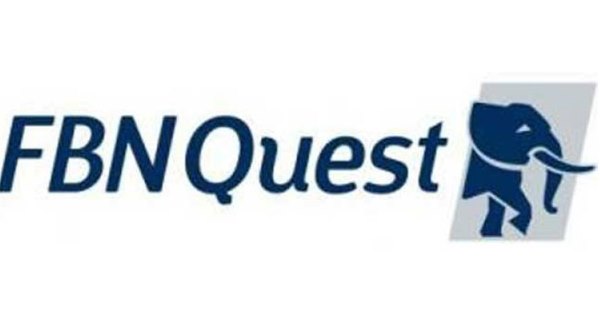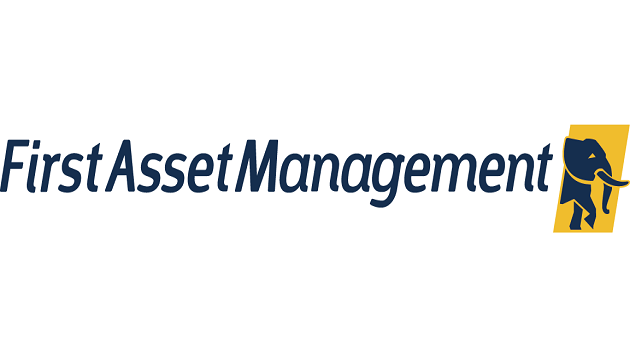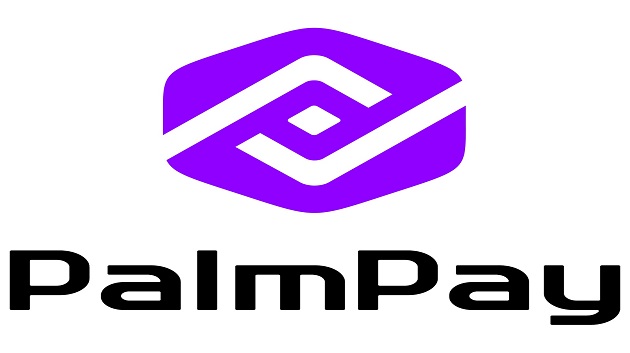E-Financial
Understanding Private Equity and Alternative Investments

Although there are a variety of options for raising capital and attracting investors, equity is one of the two most sort after options. It allows a company to give a share of ownership of its business to an investor in expectation of a return as the business grows.

Unlike public equity (stock market) with ownership of shares in a public company, private equity (PE) simply means ownership of shares in a private company.
Private equity is a type of capital investment (asset or security) made to (target) companies that are not publicly traded on a stock exchange. As an alternative form of private financing, private equity allows investors directly invest in companies through which such investors gain an ownership stake in the companies.
Investors seek PE funds to earn returns that are considered to be better than those from the public equity markets.
To avoid debt, companies can sell its stocks to raise money that can be used to fund new technology, make acquisitions, expand working capital, and fund projects geared towards business growth.
Usually, the financial information on stocks of such a company is not disclosed to the public, rather an investor can only speculate on the asset worth of the intending company.
Private equity involves three parties: the investors who supply the capital, the private equity firm that manages and invests the money on behalf of the investor via a private equity fund, and the company (known as Portfolio Company) that the private equity firm invests in.
A private equity firm’s ultimate goal is to sell or exit portfolio companies to deliver superior returns (above the benchmark return also referred to as Internal Rate of Return (IRR) to earn carried interests).
The most widely adopted investment strategies by PE investments are leveraged buyouts (LBOs) and venture capital (VC) investments. In LBOs, a PE firm will raise debt from institutional investors on the back of a target company and assume control of the target company, while using the cashflows of the target company to pay the acquisition capital.
Whereas, the VC makes investment in young and fast-growing companies in an industry that has the potential for exponential growth while adding value to the firm being taken up. In some cases, PE firms grow and improve a middle-market company with the aim to sell or exit to a mature company within a specified period.
Generally, private equity firms are active investors who are involved in the board level and monitor the financial and operating performance of portfolio companies.
However, some private equity firms are involved in the day-to-day operations of portfolio companies and may take C-level positions such as CEO, CFO, CIO and COO to ensure that value creation initiatives are implemented in the portfolio companies to ensure that increase in revenue, improvement of operational efficiency and corporate governance.
A private equity fund is typically opened to institutional and accredited (individual or business entity) investors who invest large sums of money for a long period.
Institutional investors are companies or organisations like endowment funds, commercial banks, hedge funds, mutual fund managers, and insurance companies that invest money on behalf of other people.
Accredited investors on the other hand are individuals or a business entity that invest based on their income, net worth, asset size, governance status, or professional experience. The reason is that private equity as an asset class is generally illiquid and has a long lock-up period and only ideal for investors with a large asset size (or AuM).
Other alternative investments include infrastructure assets, art, antique furniture, automobiles, real estate, commodities, exchange-traded funds, and hedge funds.
The market performance of traditional investments and alternative investments are independent of each other, hence, the inclusion of alternative investments in a portfolio can reduce its risk through diversification.
Before the coronavirus outbreak, PE investments in Nigeria have been flourishing and as a result in 2019 Nigeria was described by the African Private Equity and Venture Capital Association (AVCA) as one of the most attractive destinations for PE investments. Between January and February 2019, PE in Nigeria recorded investments worth 277.64 billion ($767 million), an improvement of 345 per cent compared to 62.37 billion ($172 million) worth of deals closed during the corresponding period in 2018.
The deals within the first two months of 2019 included the 100 per cent acquisition of Chi Ltd by Coca-Cola Company for the sum of $500 million, which accounted for 65 per cent of the total private equity investments within that period.
Other notable deals included Access Bank Plc’s acquisition of Diamond Bank Plc., the Partech- led Series A funding of Kudi, a financial services provider, and the acquisition of Wakanow, a travel agency, by the Carlyle Group valued at $40 million, to mention a few.
Why Invest in Private Equity?
Private equity firms have grown over the years to become attractive investment vehicles for wealthy individuals and institutions who manage large pools of capital. PE often guarantee better returns compared to other investments, with some private equity managers outperforming the public markets.
To diversify holdings, investors turn to private equity for higher returns than do public market. Specifically, such investments are for investors who can afford to have capital locked up for long periods.
Investors in private equity funds are called limited partners. As a limited partner, you get a return on your investment when the private equity firm sells the company it purchases while the private equity firm (also called general partners) takes some percentage as profit.
In Nigeria, different PE firms like FBNQuest Funds have their specific deal sizes, investment horizons, sector focus, fundraising timelines, and exit strategies. As one of the leading alternative investments managers in Nigeria, FBNQuest Funds has been in operations for over 17 years and has invested in over 70 private companies through direct investing and their expertise and exposure to PE and VC Funds. Domiciled in Nigeria, the firm has investments in companies in Nigeria and other countries within the Sub-Saharan Africa region.
E-Financial
Fintech, Remittances Anchor Africa’s Booming Payments System

Africa’s Micro, Small, and Medium Enterprises, fintech industry, scaling remittances, and cross-border payments will be the driving forces behind the continent’s digital ballooning payments system, which is estimated to reach $1.5 trillion by 2030.

This is according to a MasterCard-commissioned study by Genesis Analytics, which states that the digital payments economy is growing faster on the continent.
This comes as the World Bank says Sub-Saharan Africa has shown significant growth in financial inclusion over the past decade, much of it driven by mobile money account adoption.
Dimitrios Dosis, president, Eastern Europe, Middle East and Africa at MasterCard, comments: “Africa is filled with immense possibilities, and its people have the potential to shape the global economy in the decades ahead.
“MasterCard remains deeply committed to driving digital transformation across the continent, working closely with entrepreneurs, merchants, banks, start-ups, telcos, and governments. By increasing our investments, expanding innovation, and fostering inclusion, we are helping build a more connected and accessible digital future.”
The payment technology company went on to say as a longstanding technology partner to Africa, its continues to strengthen its commitment to the continent’s digital growth through strategic investments, public-private partnerships, and innovation initiatives that drive financial health and economic growth.
In addition, it says trends in Africa signal a strong shift towards digital transactions, with businesses and consumers increasingly embracing contactless solutions, further accelerating economic participation and financial accessibility across the region.
“For over five decades, MasterCard has worked alongside African governments, businesses, and communities to advance financial inclusion and economic development.
“With Africa projected to host nine of the world’s 20 fastest-growing economies, we are focused on leveraging our expertise and a technology to support the continent’s continued digital transformation.
“Our investments today will help build a more resilient economy for the future,” says Mark Elliott, division president, Africa, MasterCard
By fostering collaboration with key stakeholders, MasterCard says it aims to enhance digital connectivity, expand economic opportunities, and enable millions of people and businesses to thrive in the digital economy.
E-Financial
First Asset Management expands into US Equity Market, Introduces FBN Blended Dollar Fund

First Asset Management, one of Nigeria’s investment managers and a subsidiary of First HoldCo Plc. has launched its FBN Blended Dollar Fund to drive up customer earnings through its rich blend of US equity and high-profile investments domiciled in Nigeria.

In its recent webinar, the company discussed the advantages of its newly launched FBN Blended Dollar Fund. First Asset Management is the first company to launch a blended fund in the equity market to maximise customer earnings.
The event was part of the First Asset Management Leading Conversations Webinar Series, which convenes financial industry experts. The session was moderated by the renowned journalist, Omohefe Osemere and featured a distinguished panel including Laura Fisayo- Kolawole, Head of Equities & Alternative Asset Management at First Asset Management; Robert Hageneers, Head of Markets at FirstBank UK; Gbolahan Ologunro, Portfolio Associate at First Asset Management; and Dr. Ayodeji Akamu, Research Associate for Energy & International Economics at First Bank of Nigeria Limited.
The panel discussion revolved around the theme, “Blending Returns in a Dynamic Global Environment: Navigating Trump’s Trade Agreement,” addressing its impact on equity markets in both Nigeria and the United States. The conversation offered insights into global investment strategies amidst ongoing economic volatility.
During the session, First Asset Management introduced the FBN Blended Dollar Fund, explaining its significance and urging investors to seize this opportunity. With a global economic landscape filled with uncertainties, investors are increasingly concentrating on strategies to blend returns across asset classes.
This year, the positive shift in investor sentiment towards Nigeria has been driven by improvement in the monetary policy framework, increased domestic crude oil production, and rising non-oil revenue supported by improved VAT and customs duty collections—factors anticipated to continue bolstering investor confidence.
Laura Fisayo-Kolawole provided insights into U.S. President Donald Trump’s new economic policies, aimed at protecting local industries and stimulating the U.S. economy. She discussed the potential long-term effects of high tariffs designed to discourage imports, noting that while there is optimism stemming from Trump’s first-term policies, the market remains volatile and the full impact of these tariffs, effective from April 2, 2025, is still uncertain.
Ike Onyia, Managing Director at First Asset Management, underscored that the FBN Blended Dollar Fund is a versatile product ideal for investors with a keen interest in growth. It offers competitive returns that can help hedge against inflation and currency risk while providing liquidity.
With a structure that allocates 20% to U.S. equities and 80% to fixed-income instruments, money market instruments, and Euro bonds domiciled in Nigeria, the fund presents diversified exposure to global markets. Onyia expressed enthusiasm about launching a product that offers a unique opportunity for investors to position themselves in an evolving economic landscape.
E-Financial
PalmPay Partners Verve to Provide Millions of Customers Access to Debit Cards

PalmPay, one of Africa’s fastest-growing fintech platforms, yesterday officially launched its new PalmPay Debit Card in partnership with Verve, Africa’s largest domestic card scheme.

This partnership reflects PalmPay and Verve’s shared commitment to driving financial inclusion by expanding access and delivering greater value across the digital payments ecosystem.
With over 35 million users and a network of 1.1 million agents and merchants across Nigeria, PalmPay is building one of the continent’s most dynamic fintech ecosystems. The launch of its debit card represents a key milestone in PalmPay’s transformation from a mobile wallet and agent network into a comprehensive digital financial services provider – offering integrated solutions for payments, savings, credit, insurance, and now, card access.
The PalmPay Debit Card is seamlessly integrated with the PalmPay wallet, combining the convenience of a traditional bank card with the speed and flexibility of a digital platform, and access to PalmPay’s unique financial ecosystem.
Key Features include:
- Zero maintenance fees
- Easy in-app application and nationwide delivery
- Exclusive cashback and merchant rewards
- Full wallet integration, including access to high-yield savings (up to 16% APR, paid daily)
- Seamless offline and online payments across the Verve network
The card is accepted at all major payment terminals within Nigeria, offering both debit and contactless options. With this launch, PalmPay aims to redefine the everyday banking experience – making it more accessible, reliable, and rewarding.
Alongside the standard debit card, PalmPay is also rolling out PalmPay Premium, a tailored offering for high-volume users. Benefits include:
- A dedicated PalmPay Premium Card
- Priority customer support
- Higher transaction cashbacks and savings interest rates
- Exclusive merchant rewards and advanced financial tools
This premium service reinforces PalmPay’s commitment to empower users at every stage of their financial journey – from first-time account holders to high-earning professionals seeking more from their financial tools.
The PalmPay Debit Card was made possible through PalmPay’s strategic partnership with Verve, reinforcing both companies’ shared commitment to inclusive, locally relevant digital banking solutions.
“PalmPay is dedicated to using technology to broaden financial access,” said Chika Nwosu, Managing Director of PalmPay Nigeria. “This collaboration enables us to offer secure, widely accepted payment cards integrated with the full power of PalmPay’s ecosystem. Together, we’re reshaping how Nigerians experience digital finance.”
Vincent Ogbunude, Managing Director of Verve International, added: “We are proud to partner with PalmPay on this important milestone. Our alliance with PalmPay reflects our shared mission of accelerating financial inclusion and delivering payment innovation that meets the needs of African consumers.”
From zero-fee transfers and high-yield savings to instant credit, insurance, and now cards, PalmPay is building the financial infrastructure of the future – redefining digital banking to be more personalised, comprehensive and accessible to everyone.

 E-Business3 days ago
E-Business3 days agoFG Plans to Link Social Register to NIN for Humanitarian Crisis

 Telecom3 days ago
Telecom3 days agoKeystone Bank Seeks to Join Suit in Tussle over 9Mobile Shares Ownership

 Broadcasting3 days ago
Broadcasting3 days agoWe’re Confident in the Super Eagles – Karl Toriola

 E-Financial3 days ago
E-Financial3 days agoFG to Harmonise Fiscal Data Across MDAs

 E-Business3 days ago
E-Business3 days agoFive WhatsApp Business Features Every Small Business Should Be Using

 News3 days ago
News3 days agoSenate Probes Federal Character Violations by NDIC, Others

 News2 days ago
News2 days agoCourt Throws Out Falana’s Fraud Case against Ekeh, Zinox Boss and Others

 E-Financial3 days ago
E-Financial3 days agoZumax Files N4.1Bn Suit against CBN over ‘Fraudulent’ Receivership

























